
Inflammation
Latest News

Latest Videos

CME Content
More News

A recent review points to a host of potentially disease-modifying agents currently in clinical trials.

Investigators in Spain evaluated symptoms and comorbidities associated with eosinophilic esophagitis.

Dupilumab was associated with reductions in exacerbations and oral corticosteroids (OCS) dosage, as well as improved lung function, in patients with OCS-dependent asthma with and without comorbid chronic rhinosinusitis with nasal polyps.
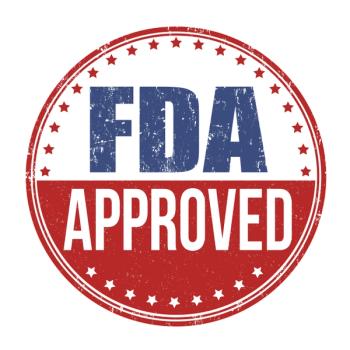
Eosinophilic esophagitis is a chronic inflammatory disorder in which eosinophils, a type of white blood cell, proliferate in the esophagus, causing difficulties with eating and swallowing.

Use of a chitosan-based gel dressing after endoscopic sinus surgery for nasal polyps was found to reduce risk of wound infection and synechia in patients, although no difference was observed regarding granulations.
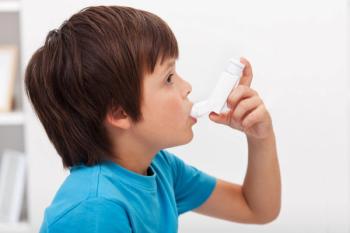
Dupilumab improved lung function and reduced severe asthma exacerbation rates in children with moderate to severe asthma with or without atopic comorbidities.

In their paper, the researchers detail the first, to their knowledge, case of a potential gain of function phenotype for IL-33 in a human.

Colette Romero, whose child has eosinophilic esophagitis (EoE), describes some of the coping strategies her family uses to encourage her son to keep healthy.

Patients with comorbid chronic rhinosinusitis (CRS) with nasal polyps and severe asthma reported significant improvement in their sense of smell when treated with the biologics omalizumab, mepolizumab, reslizumab, or benralizumab, with no significant differences observed between the treatment groups.
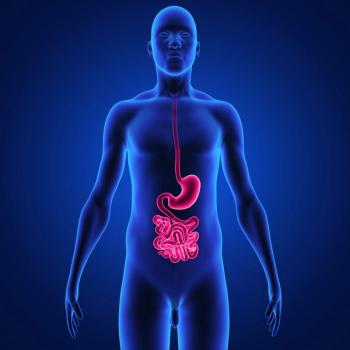
A recent study sought to address what is known about proton pump inhibitors (PPIs) as a therapy for eosinophilic esophagitis and long-term outcomes in patients who respond to them as a way to guide treatment decisions.
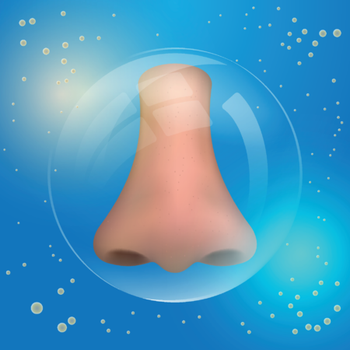
Katharine Rimes, PharmD, and John Bosso, MD, discussed updates in management of chronic rhinosinusitis with nasal polyps at the 2022 Asembia Specialty Pharmacy Summit.

A machine learning approach identified age and several comorbidities, such as nasal polyps and asthma, as being associated with revision endoscopic sinus surgery among patients with chronic rhinosinusitis.

The authors said that to their knowledge, this is the first report of cytomegalovirus (CMV) that developed during the treatment of eosinophilic enteritis in an adult.

Patients with aspirin-exacerbated respiratory disease (AERD) who initiated treatment with dupilumab as an add-on asthma or chronic rhinosinusitis with nasal polyps therapy reported rapid clinical improvement that was sustained after 3 months.

Presence of human papillomavirus (HPV) was significantly associated with incidence of chronic rhinosinusitis with nasal polyps (CRSwNP), although no differences in disease severity were observed among HPV-positive and HPV-negative patients with CRSwNP.

A small retrospective study examined outcomes in patients with eosinophilic esophagitis (EoE) who did respond to solo therapies.

Use of dupilumab was associated with significant improvement in clinical symptoms of chronic rhinosinusitis (CRS) with nasal polyps among real-world patients in Canada, with benefits shown to be similar to that observed in randomized clinical trials.

Patients with chronic rhinosinusitis (CRS) with nasal polyps identified several unmet needs regarding their condition, particularly a lack of public and physician awareness on disease burden and poor sleep quality.
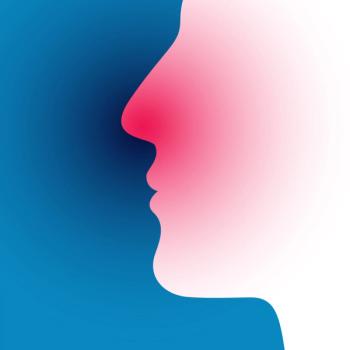
An exhalation system with fluticasone was shown to significantly reduce nasal polyp score at 4 and 16 weeks compared with placebo, with improvements also observed in several patient-reported outcomes.
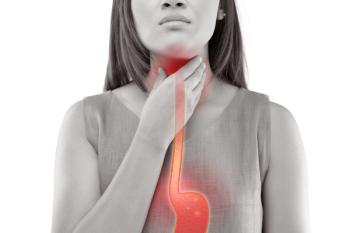
The lack of effective long-term control of eosinophilic esophagitis (EoE) highlights the unmet need for targeted systemic therapies.

Other gastrointestinal disorders and inflammatory diseases have also been linked to psychiatric disorders, but not much is known about the connection to eosinophilic esophagitis (EoE).

The study was conducted because information on the relationship between eosinophilic esophagitis (EOE) symptoms and biologic findings are limited, so researchers looked at the long-term effects of esophageal dilation, including patient-reported outcome (PRO) measures.

Reduced health-related quality of life was identified in patients with chronic rhinosinusitis with nasal polyps compared with the general population—regardless of previous sinus surgery or presence of comorbidities.

Across 3 disease states, dupilumab has been shown to create rapid, clinically meaningful responses that were sustained, which could improve adherence and the patient-provider relationship.

Circulating B cell–activating factor was shown to be a potential biomarker in identifying blood eosinophil counts and risk of postoperative nasal polyp recurrence among patients with chronic rhinosinusitis with nasal polyps (CRSwNP).









